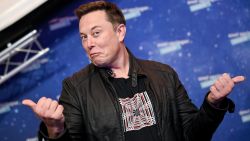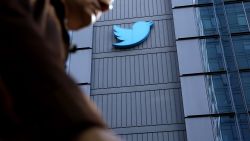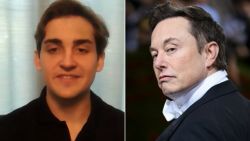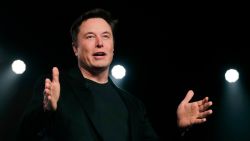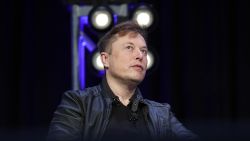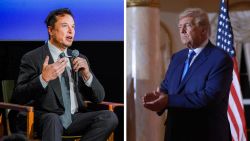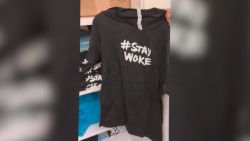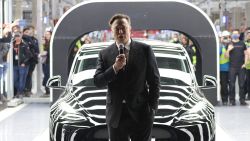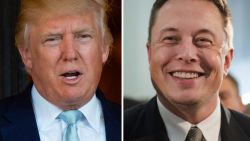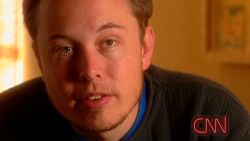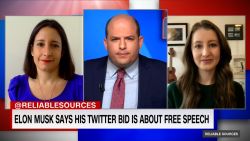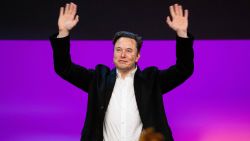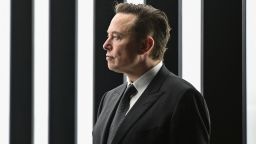Elon Musk recently purchased 9.2% of Twitter stock, according to a filing Monday, making him the largest shareholder in the company.
News of the purchase sent shares of Twitter (TWTR) soaring 22% in early trading. Musk did not disclose what he paid for the shares, but his stake was worth $2.9 billion as of the close of trading Friday, and $3.5 billion after the spike early Monday.
Musk’s filing did not disclose the purpose of the purchase or any plans for the company. But he has been a high-profile critic of Twitter policies in the past. Last month he said he was giving “serious thought” to creating a new social media platform.
“Given that Twitter serves as the de facto public town square, failing to adhere to free speech principles fundamentally undermines democracy,” Musk tweeted last month. “What should be done?”
Any time an investor buys 5% or more of a company’s shares, they must disclose the purchase in filings with the Securities and Exchange Commission. Although a stake of less than 10% in a company is considered “passive” in the eyes of Wall Street, it could signal an effort by Musk to take a more active role in how Twitter is run. That is one of the factors prompting other investors to buy shares and drive up the price early Monday.
“I think he intends to go active and force change at Twitter,” said Dan Ives, tech analyst as Wedbush Securities. “This is a shot across the bow at Twitter’s board and management team to start discussions.”
Even if Musk doesn’t try to change the way Twitter operates, his large purchase could prompt some other activist investors to take a stake in the company, Ives said.
“One way or another, he’s going to change the course of Twitter,” Ives said.
Ives said it’s probably not realistic for Musk or anyone else to try to start building a new, competing platform from scratch. Thus it makes more sense for him to try to change practices at Twitter itself.
Twitter did not have an immediate response to a request for comment on Musk’s investment.
Musk among most popular tweeters
Musk has 80 million Twitter followers, far more than any other CEO. And he is a frequent tweeter, using it as the major form of disseminating news about both Tesla (TSLA) and SpaceX, the two companies he leads, neither of which has the traditional public relations department in place at other companies.
His tweets have gotten him in trouble at times, though.
In 2018 Musk tweeted that he would be taking Tesla private at a price of $420 a share, and that he had “funding secured” to do just that. It later became clear that while he did have discussions about funding such a bid, the funding was by no means secured.
Musk settled the case by giving up his role as Tesla’s chairman, although he remains its CEO. He and Tesla each paid a $20 million fine as well, with Musk compensating the company for its payment by purchasing an additional $20 million in Tesla stock.
He also agreed to have any of his future tweets that might contain material information about the company reviewed by other executives at Tesla before sending them. The SEC has questioned whether or not he is complying with that provision of the agreement, and Musk and the agency are fighting about that matter in court.
Twitter’s recent turmoil
Twitter founder Jack Dorsey stepped down as CEO last November in a sudden move without the kind of advance notice that typically is given with this type of leadership change. He was succeeded by Parag Agrawal, who had been chief technology officer.
Musk had expressed support for Dorsey in the past when he was facing criticism from some shareholders. And when Agrawal was first named Twitter CEO, someone else tweeted the fact that Google, Microsoft, Adobe, IBM, Palo Alto Networks and Twitter are all run by executives who grew up in India, Musk replied with his own tweet: “USA benefits greatly from Indian talent!”
But just days later, he tweeted a meme that equated Agrawal to former Soviet leader Joseph Stalin and depicted Dorsey as a former Stalin confident the dictator later had assassinated.
“Musk has already indicated that he did not agree with the appointment of Agrawal and that he desires some changes,” Morningstar analyst Ali Mogharabi said in a note to clients. “This creates a bit more uncertainty about how Agrawal and the firm may respond to the firm’s now largest shareholder.”
Unlike Musk, who owns more than 20% of Tesla, Dorsey’s stake in Twitter is relatively modest, with only 2.3% of the company’s shares.
Musk doesn’t necessarily need to become CEO of Twitter to be able to persuade the company to change its practices, Ives said. And it’s not completely clear what changes he would like to see.
He recently ran a Twitter poll asking his followers whether they believe Twitter rigorously adheres to the principle of free speech — 70% said no — and another poll asking whether its algorithms should be open source — 83% responded yes. Both polls attracted more than 1 million responses.
But the kind of changes that Musk might be advocating for at Twitter could be far different from those a traditional activist investor might seek, which typically concern increasing a company’s stock price.
Activists have targeted Twitter in the past
Twitter has faced activist investors before. Hedge fund Elliott Management in 2020 pushed for changes at the platform, including possibly forcing out Dorsey or insisting he give up a separate CEO position he had at payments technology company Square (SQ). Dorsey survived that challenge but ultimately decided to leave Twitter more than a year later.
Twitter has become a target for critics on both sides of the political divide. Some believe the platform did not do enough to combat misinformation about Covid-19 and alleged election fraud. Others believe it was wrong to censor some points of view, including banning former President Donald Trump.
Twitter’s $31.5 billion market value is a fraction of what companies such as Tesla or rival social media giant Meta, the owner of Facebook and Instagram, are worth. And Twitter’s stock has lost more than half of its value since February 2021, when the company reported that its efforts to tackle misleading content around the US elections cost the platform some users.
Still it would probably be too expensive for Musk to buy Twitter on his own, said Ives, especially since most of his wealth is tied up in his holdings of Tesla and SpaceX shares. Musk is the world’s richest person, with an estimated net worth of $288 billion, according to Forbes.
“He’d have to partner up with private equity,” Ives said. “It’s not like he could do it himself.”



